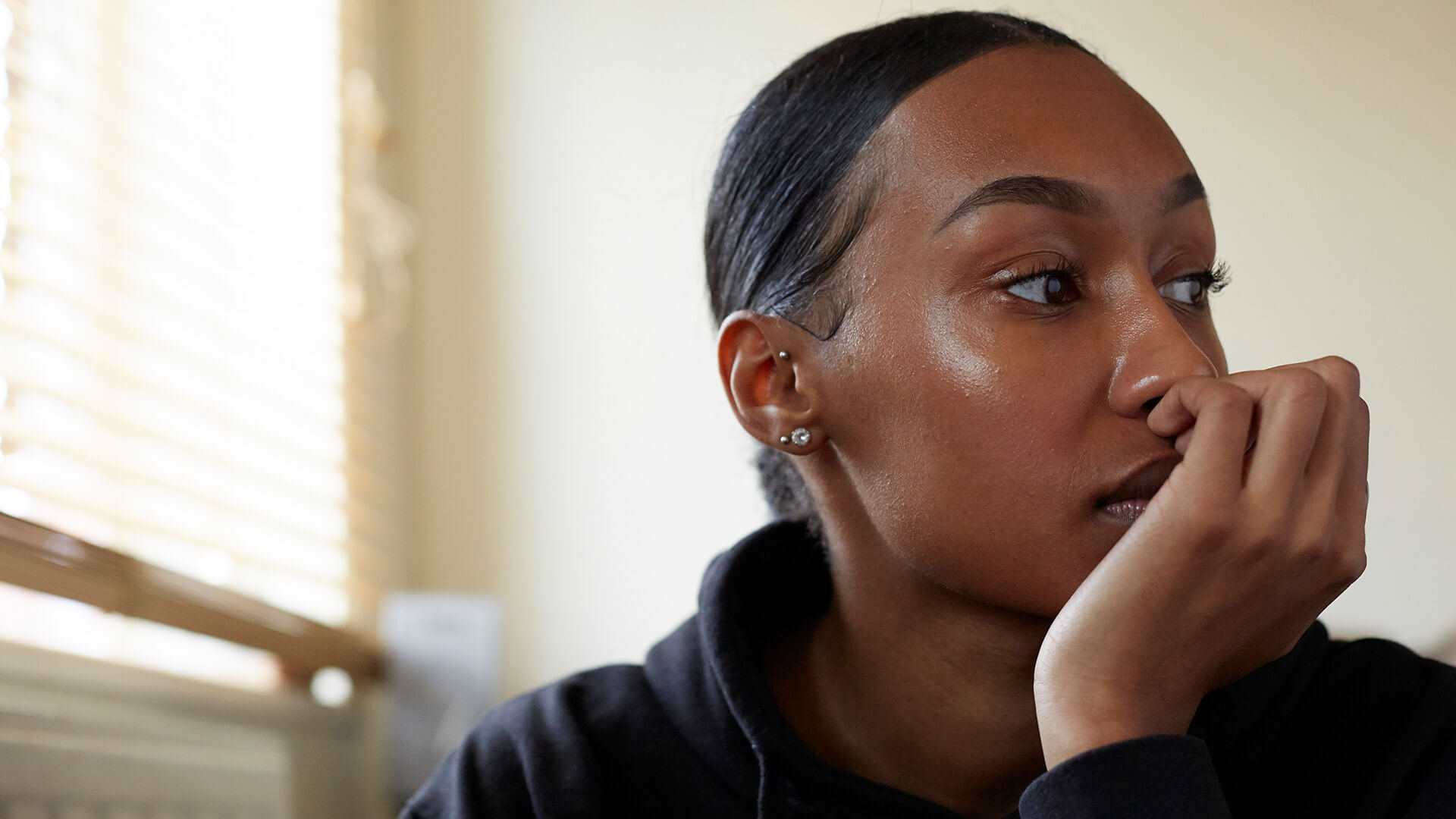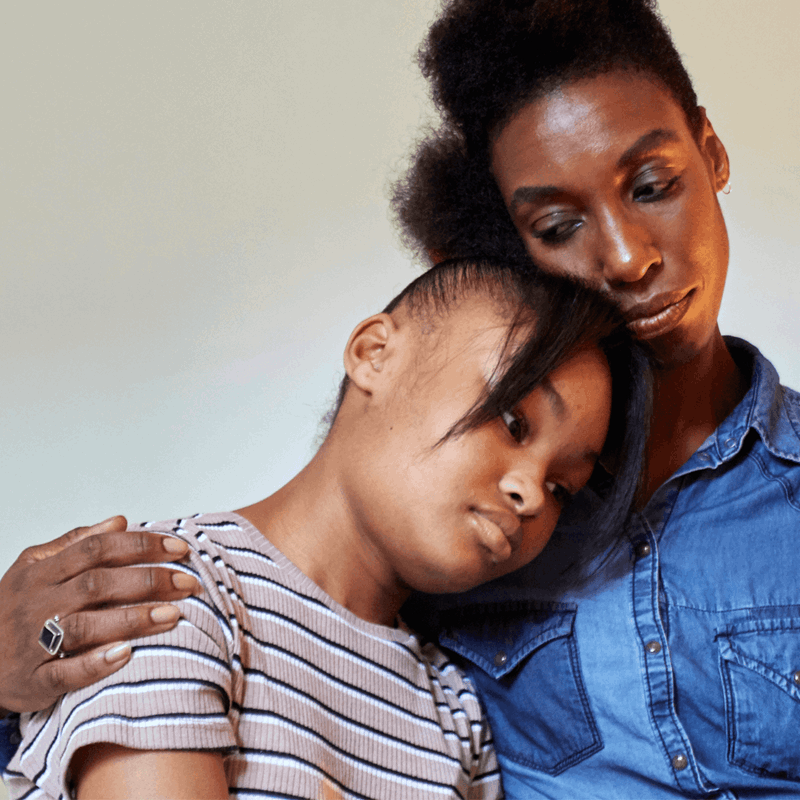What do we mean by 'personality'?
‘Personality’ is difficult to define. It’s a collection of things that makes us an individual, including how we think, feel and behave. We could think about it as the part of us which relates to other people and decides how we express ourselves.
Our personality develops when we’re growing up, and stabilises in our 20s and 30s. That’s why when a young person, whose personality is still developing, starts to experience features linked to a personality disorder, they might be diagnosed with an ‘emerging’ or ‘borderline’ personality disorder.
The way personality develops is complicated and not fully understood, but it is a lot to do with our experiences and how we process them. Sometimes when we go through difficult or traumatic experiences it can affect our mental health and might lead to things like depression or psychosis. But sometimes, difficult experiences affect us more generally, affecting our developing personalities, making it difficult to accept ourselves for who we are and to have positive relationships with other people.

Sometimes it feels like I’m on an emotional rollercoaster that I can’t get off.
What is a 'personality disorder'?
A person with a personality disorder doesn’t have a ‘wrong’ or ‘bad’ personality.
A ‘personality disorder’ means that the way we see ourselves and relate to others has been affected so much by our negative experiences that it causes us significant emotional difficulties which lead to lots of problems in daily life. This could include things like struggling to keep friendships, feeling abandoned and unable to cope with life, or struggling to control your reactions.
Everyone has emotional difficulties at some point, but some people just need a bit more help when they are struggling than others.
If your emotional difficulties, stress and struggles with relationships continue over a long period of time, you probably need special help to break out of these patterns.
What is 'borderline' or 'emerging borderline' personality disorder?
People with borderline personality disorder, or BPD as it's often known, experience very changeable emotions often triggered by their relationships. At times of stress, these emotions can become so intense that they feel that they cannot cope and don’t want to be alive. These feelings become most intense during times when we are most unable to cope, and this is when it is most important to tell others and get support.
BPD often develops as a result of experiencing trauma growing up, like abuse, being in care, or having parents with their own complex mental health needs. Significant learning disability can also make it much harder for people to cope and manage their feelings and behaviour.
Features of borderline or emerging borderline personality disorder might include some or all of the following:
- feeling alone and abandoned
- having emotions that change very quickly and in an extreme way (from day to day, or even from one hour to the next)
- having doubt about who you are, or feeling empty
- wondering if anybody really cares about you
- difficulty making or maintaining close relationships
- taking risks with drugs, relationships, studies, money and sex because of your quickly-changing emotions or uncertainty over your relationships
- self-harm and suicidal thoughts
- struggling with anger
- hearing voices or having other unusual experiences
BPD can also be known as an emotionally unstable personality disorder (EUPD).
The challenge for anyone struggling with a borderline or emerging personality disorder is first to recognise that there is a problem – and that can be really hard to do. Often family and friends may be the first to notice these patterns. Having trusted support is important during this time.
It can take time, but you can start to take control over negative patterns that are starting to become second nature. With the right help and support, you can get better and make your life and relationships healthy and positive again.

I was diagnosed with BPD in 2017, after being in psychiatric hospital for a while. When I first heard about BPD, I went online and printed out a load of information on it and highlighted almost the whole of each page. It suddenly made so much sense. All the things I hadn’t wanted to talk about, all the feelings that didn’t make sense to me, things I couldn’t put my finger on – they were all there on a few pages. Although the information said just 1.6% of us share this experience, it still made me feel so much less alone than I had.
I felt ashamed and abnormal when I would feel certain things: such as feeling suicidal over seemingly trivial events or interactions. Some days, I didn’t feel real: believing that the emptiness of being so unwell had consumed all of me so much so that there wasn’t even really a true ‘me’ anymore. I desperately wished I could undo all of it; but every day was a drop deeper than the last, and it happened so suddenly.
I never spoke about the details of what I felt, and never thought I would. I worried about how it would look and how far people would drift from me, because if it didn’t even make sense to me, how could it make sense to anybody else?
Getting help

Reaching out for help is the first step
Having borderline difficulties is exhausting emotionally, but reaching out for help is the first step in getting better. Talk to someone you trust – this could be a friend, a teacher, a relative or a counsellor.
It is really important for you to talk to your GP and tell them if you are worried you might have BPD. Your doctor might ask you questions about how you’ve been feeling and behaving. Don’t be afraid of being honest – it’s more than likely your doctor will have heard from lots of other people who are also struggling with their mental health. You might find it helpful to write down what you want to say in advance and bring it with you to your appointment.
Your GP will not be able to give you a diagnosis of BPD – only a special mental health professional can do this. But they can refer you to Child and Adolescent Mental Health Services (CAMHS) for an assessment and let you know what other support is available to you in your local area.
Treating BPD
There are different therapies which might be used in your treatment, such as dialectical behavioural therapy (DBT), cognitive analytic therapy (CAT) and mentalisation based therapy (MBT). Many of these use coping strategies such as mindfulness to start off with, while helping you develop and improve your self-esteem and relationships.
You might be prescribed medication like sedatives to reduce distress and allow the psychological therapy to work.
Many people have difficulties like anxiety and depression alongside borderline problems and might be prescribed antidepressants for these.
Taking the brave step to seek help is important. Reading this information is an important first step. Getting the right help and learning to deal with all the difficult, upsetting things you have gone through will make a real difference to your future wellbeing.
More information and support
Get help now
Where to get help
If you're struggling with how you feel, you don't have to struggle alone. Here are some services that can support you.
-
Samaritans
Whatever you're going through, you can contact the Samaritans for support.
- Opening times:
- 24/7
-
Childline
If you’re under 19 you can confidentially call, chat online or email about any problem big or small.
Sign up for a free Childline locker (real name or email address not needed) to use their free 1-2-1 counsellor chat and email support service.
Can provide a BSL interpreter if you are deaf or hearing-impaired.
Hosts online message boards where you can share your experiences, have fun and get support from other young people in similar situations.
- Opening times:
- 24/7
-
The Mix
Offers support to anyone under 25 about anything that’s troubling them.
Email support available via their online contact form.
Free 1-2-1 webchat service available.
Free short-term counselling service available.
- Opening times:
- 3pm - 12am, seven days a week
-
NAPAC (the National Association for People Abused in Childhood)
Offers support to adult survivors of all types of childhood abuse, including physical, sexual, emotional abuse or neglect.
- Opening times:
- 10am - 4pm, Monday, Wednesdays & Fridays; 2pm - 9pm, Tuesdays & Thursdays





